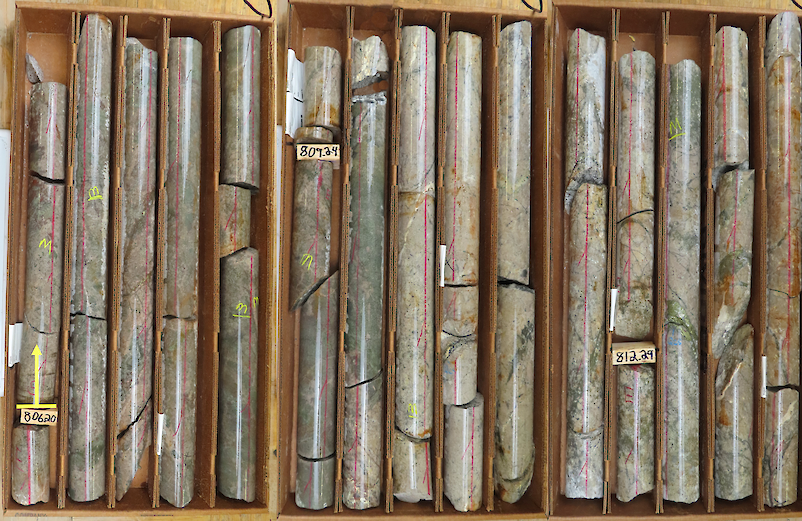Gold Market Report
Source: Ben Traynor, BullionVault (8/1/11)
"Only a move back below $1,577 would shake this bullish outlook."
U.S. dollar gold bullion prices rallied to almost $1,620/oz. Monday morning London time—0.7% off Friday's all time high—having dropped sharply as Asia opened, while stocks and commodities rose after U.S. President Obama announced a last-minute debt ceiling agreement.
Silver bullion prices traded around $39.50 per ounce—around 1% down from Friday's close.
"We see the next resistance point [for gold] as $1,670," say technical analysts at gold bullion bank Scotia Mocatta.
"Only a move back below $1,577 would shake this bullish outlook."
"Gold will be knocked back a little [following the debt ceiling agreement]," reckons Steven Zhu, operations manager at Yinjian Futures in Beijing, noting
"However, problems still exist within the economies of the U.S. and Europe and that will keep gold's uptrend intact."
The U.S. Congress is due to vote Monday on whether to raise the $14.3 trillion federal debt ceiling—after Republican and Democrat leaders agreed a deal on cutting the deficit.
The deal would raise the debt ceiling by around $2.1 trillion—avoiding a possible default on U.S. Treasury bonds—while cutting government spending by around $2.4 trillion.
The deal identifies $900 billion in spending cuts spread over the next decade. It would also appoint a commission to identify another $1.5 trillion in cuts by the end of November—with automatic cuts for defense and Medicare if the committee fails to deliver.
"Talk about kicking the can down the road," says Stephen Roach, economist at Yale University.
"This is probably the biggest can that's ever been kicked—appointing another commission to do the heavy lifting another day."
Press reports suggest the bill is likely to pass the Senate, but may face opposition in the Republican-controlled House of Representatives—where several members support the conservative Tea Party movement.
"There's nothing in this framework that violates our principles. . .it's all spending cuts," House speaker John Boehner told fellow Republicans on Sunday.
"The cuts are not there for the first couple of years," points out Peter Morici, economist at the University of Maryland.
"[It] makes you wonder if they're really going to happen at all."
"A lot of economists feel that this is not the right time. . .[for] shifting from massive stimulus to massive restraint," adds Barclays Capital U.S. economist Troy Davig.
Though the U.S. may avoid a default, "a U.S. sovereign rating downgrade is, however, likely" says Marc Ground, commodities strategist at Standard Bank.
"[This] could limit the impending sell-off in precious metals, and especially gold, once an agreement is reached."
Over in China—the world's second-largest gold bullion consumer—the yuan hit an all-time high of $0.1556 against the dollar on Monday.
"It seems that the central bank intends to take advantage of the weakening dollar to nudge its currency up further in the short-term," says one trader in Shenzhen.
The PBoC—which last month raised interest rates for the fifth time in less than a year—reiterated on Monday that fighting inflation is its top priority. Consumer price inflation rose to 6.4% in June—its highest level since July 2008.
Barclays Capital says it expects another quarter-of-a-percent rise in the third quarter of 2011—while the PBoC may also continue to let the yuan appreciate "to tame imported inflation," says a Shanghai-based trader.
China's official purchasing manager's index for manufacturing fell for the fourth month running in July to 50.7—down from 50.9 the previous month. A figure above 50 implies the sector is expanding, while one below 50 implies contraction.
The PBoC "finds itself in a quandary" says German gold bullion refiner Heraeus in its latest Precious Metals Weekly.
"On one hand it has to fight inflation but on the other side it cannot raise interest rates too high as that would cramp the already slowing industrial growth."
This conflict—along with sovereign debt concerns in the U.S. and Europe—makes gold bullion "one of the more preferred asset classes by investors in all the three regions of the world. . .despite its already high price."
Here in Europe, Germany's manufacturing PMI fell to a 21-month low of 52.0—down from 54.6 in June—while for the Eurozone as a whole manufacturing PMI dropped from 52.0 to 50.4. The Institute for Supply Management releases manufacturing index figures for the U.S. later on Monday.
In the UK, manufacturing PMI fell to 49.1—implying the sector has contracted.
Ben Traynor
BullionVault
Gold value calculator | Buy gold online at live prices
Editor of Gold News, the analysis and investment research site from world-leading gold ownership service BullionVault, Ben Traynor was formerly editor of the Fleet Street Letter, the UK's longest-running investment letter. A Cambridge economics graduate, he is a professional writer and editor with a specialist interest in monetary economics.
(c) BullionVault 2011
Please Note: This article is to inform your thinking, not lead it. Only you can decide the best place for your money, and any decision you make will put your money at risk. Information or data included here may have already been overtaken by events—and must be verified elsewhere—should you choose to act on it.
Silver bullion prices traded around $39.50 per ounce—around 1% down from Friday's close.
"We see the next resistance point [for gold] as $1,670," say technical analysts at gold bullion bank Scotia Mocatta.
"Only a move back below $1,577 would shake this bullish outlook."
"Gold will be knocked back a little [following the debt ceiling agreement]," reckons Steven Zhu, operations manager at Yinjian Futures in Beijing, noting
"However, problems still exist within the economies of the U.S. and Europe and that will keep gold's uptrend intact."
The U.S. Congress is due to vote Monday on whether to raise the $14.3 trillion federal debt ceiling—after Republican and Democrat leaders agreed a deal on cutting the deficit.
The deal would raise the debt ceiling by around $2.1 trillion—avoiding a possible default on U.S. Treasury bonds—while cutting government spending by around $2.4 trillion.
The deal identifies $900 billion in spending cuts spread over the next decade. It would also appoint a commission to identify another $1.5 trillion in cuts by the end of November—with automatic cuts for defense and Medicare if the committee fails to deliver.
"Talk about kicking the can down the road," says Stephen Roach, economist at Yale University.
"This is probably the biggest can that's ever been kicked—appointing another commission to do the heavy lifting another day."
Press reports suggest the bill is likely to pass the Senate, but may face opposition in the Republican-controlled House of Representatives—where several members support the conservative Tea Party movement.
"There's nothing in this framework that violates our principles. . .it's all spending cuts," House speaker John Boehner told fellow Republicans on Sunday.
"The cuts are not there for the first couple of years," points out Peter Morici, economist at the University of Maryland.
"[It] makes you wonder if they're really going to happen at all."
"A lot of economists feel that this is not the right time. . .[for] shifting from massive stimulus to massive restraint," adds Barclays Capital U.S. economist Troy Davig.
Though the U.S. may avoid a default, "a U.S. sovereign rating downgrade is, however, likely" says Marc Ground, commodities strategist at Standard Bank.
"[This] could limit the impending sell-off in precious metals, and especially gold, once an agreement is reached."
Over in China—the world's second-largest gold bullion consumer—the yuan hit an all-time high of $0.1556 against the dollar on Monday.
"It seems that the central bank intends to take advantage of the weakening dollar to nudge its currency up further in the short-term," says one trader in Shenzhen.
The PBoC—which last month raised interest rates for the fifth time in less than a year—reiterated on Monday that fighting inflation is its top priority. Consumer price inflation rose to 6.4% in June—its highest level since July 2008.
Barclays Capital says it expects another quarter-of-a-percent rise in the third quarter of 2011—while the PBoC may also continue to let the yuan appreciate "to tame imported inflation," says a Shanghai-based trader.
China's official purchasing manager's index for manufacturing fell for the fourth month running in July to 50.7—down from 50.9 the previous month. A figure above 50 implies the sector is expanding, while one below 50 implies contraction.
The PBoC "finds itself in a quandary" says German gold bullion refiner Heraeus in its latest Precious Metals Weekly.
"On one hand it has to fight inflation but on the other side it cannot raise interest rates too high as that would cramp the already slowing industrial growth."
This conflict—along with sovereign debt concerns in the U.S. and Europe—makes gold bullion "one of the more preferred asset classes by investors in all the three regions of the world. . .despite its already high price."
Here in Europe, Germany's manufacturing PMI fell to a 21-month low of 52.0—down from 54.6 in June—while for the Eurozone as a whole manufacturing PMI dropped from 52.0 to 50.4. The Institute for Supply Management releases manufacturing index figures for the U.S. later on Monday.
In the UK, manufacturing PMI fell to 49.1—implying the sector has contracted.
Ben Traynor
BullionVault
Gold value calculator | Buy gold online at live prices
Editor of Gold News, the analysis and investment research site from world-leading gold ownership service BullionVault, Ben Traynor was formerly editor of the Fleet Street Letter, the UK's longest-running investment letter. A Cambridge economics graduate, he is a professional writer and editor with a specialist interest in monetary economics.
(c) BullionVault 2011
Please Note: This article is to inform your thinking, not lead it. Only you can decide the best place for your money, and any decision you make will put your money at risk. Information or data included here may have already been overtaken by events—and must be verified elsewhere—should you choose to act on it.



































